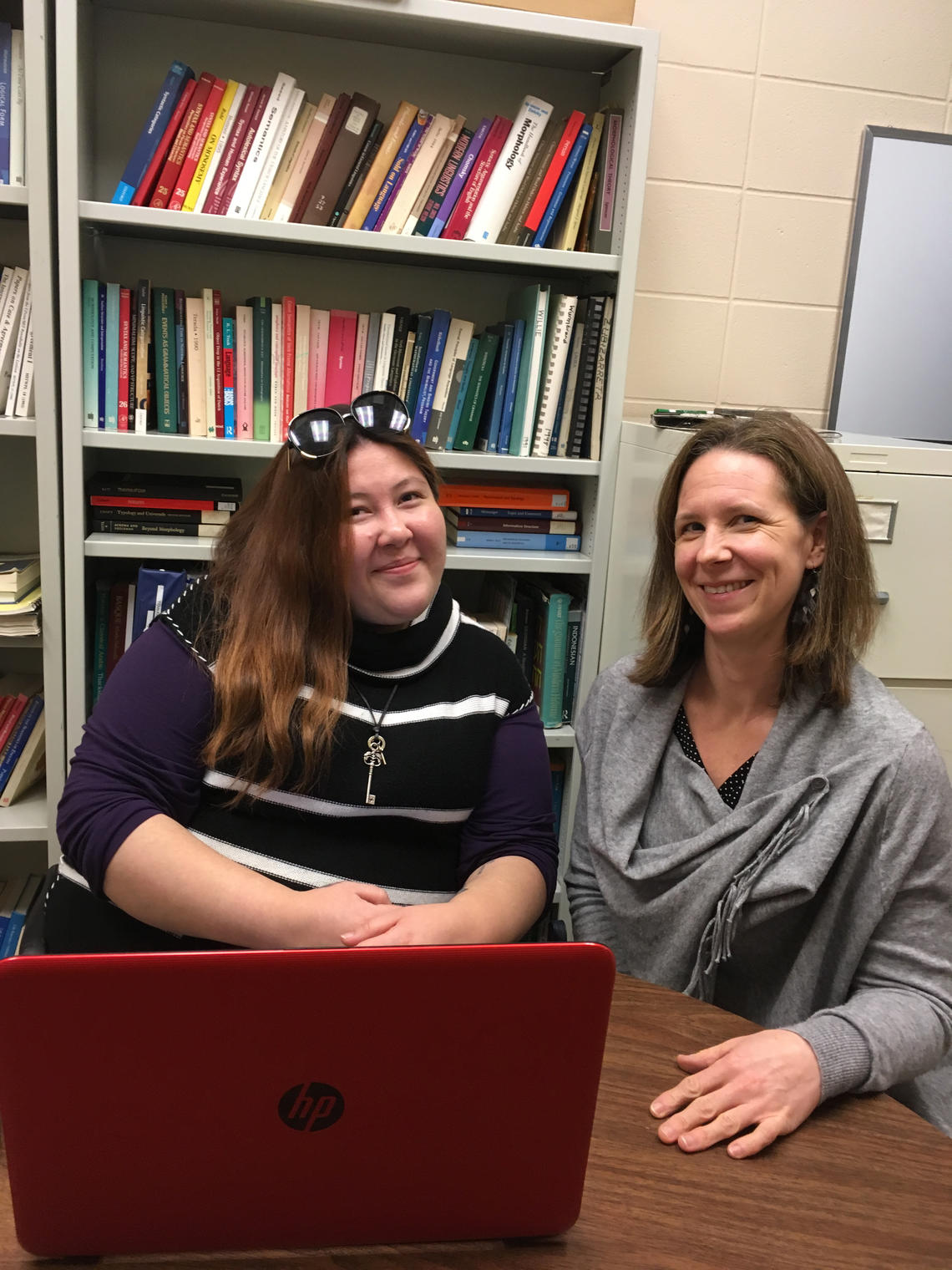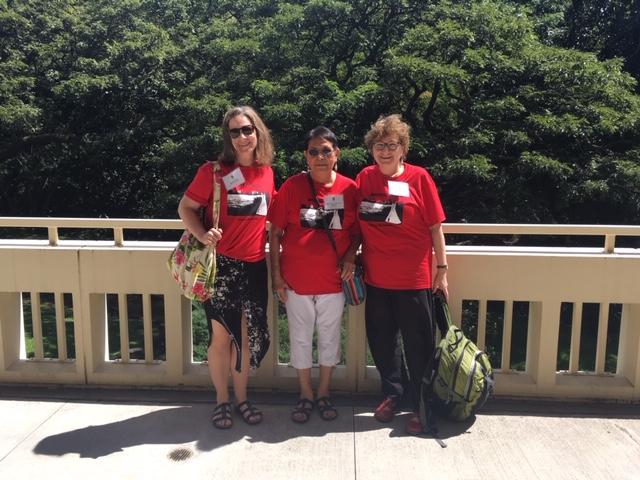June 24, 2019
Blackfoot Oral Stories Database brought to life by ii' taa'poh'to'p grant

Charm Breaker, left, and Heather Bliss worked with Elders and community.
Elizabeth Ritter
In the Blackfoot tradition, stories are shared as a way to document history and to teach important life lessons. Siksika Elder and Horn Society member Natóóhkitopi Fred Breaker tells us, “Our culture is centred around an oral tradition, and our people learn orally, through storytelling. The stories were given to us, passed down through generations, sometimes from the animals we used to converse with, and sometimes from the Creator.”
As linguists, we have been exploring the grammar of Blackfoot for over 15 years. As non-Indigenous scholars, we would not be able to do this work without the collaboration of our partners from the Siksika and Kainai Nations. Natóóhkitopi and other Elders have been generous in sharing their knowledge of their language and their stories with us as we have worked to analyze the linguistic puzzles of Blackfoot.
These stories have helped us to understand the underlying structure of the language and the ways in which it is similar to and different from other languages. But, as we did this work, it became increasingly clear to us that we can and must use our linguistic training to share the stories as they were intended — with members of the community.
With this understanding, in 2016, Dr. Heather Bliss, PhD, adjunct assistant professor in the School of Languages, Linguistics, Literatures and Cultures created the Blackfoot Oral Stories Database, an online repository of oral stories. Since that time, the database has grown to include over 100 stories told by more than 20 storytellers.

Heather Bliss, left, Blackfoot Elder Ikino’motstaan Noreen Breake, and Elizabeth (Betsy) Ritter.
Elizabeth Ritter
Ii’ taa’poh’to’p’s grants in action
Thanks to the support of a UCalgary’s ii’taa’poh’to’p grant, we continue to help foster connections between Elders, other storytellers, and younger generations of Blackfoot people through the database.
This grant has enabled us to hire Siksika community member and UCalgary student Charm Breaker as a research assistant. Having grown up away from the community and without speaking the language, Breaker at first wondered what she might contribute to the project.
However, since she began working with the storytellers, Breaker has come to see the important role that she can play in receiving and responding to the stories. Her vision is to expand the database to include her own response pieces, effectively creating an intergenerational dialogue that is not only true to the Blackfoot oral tradition in which authorship is seen as interactional, but which also connects to Breaker's studies in Communications and English.
As we continue to collaborate with Elders, other storytellers, and younger community members like Breaker, we continue to learn more about the subject that brought us here in the first place — the linguistic structures of Blackfoot. But more importantly, we are also learning how to adapt our methods and the database itself so it can respectfully and authentically serve its purpose as a tool for passing on the community’s stories
Contribute to Indigenization and decolonization at UCalgary
Do you have an idea for a project of your own that you’d like to bring to life? Ii’ taa’poh’to’p’s Intercultural Capacity Building Grants are available to all current UCalgary students, faculty and staff. Receive a grant of up to $10,000 to help UCalgary’s Indigenous Strategy in its vision to Indigenize ways of knowing, doing, connecting and being on our campus. Application deadline is June 30.
Find full details and guidelines for the grants.
ii’ taa’poh’to’p, the University of Calgary’s Indigenous Strategy, is a commitment to deep evolutionary transformation by reimagining ways of knowing, doing, connecting and being. Walking parallel paths together, ‘in a good way,’ UCalgary will move toward genuine reconciliation and Indigenization.
